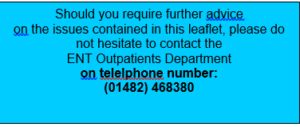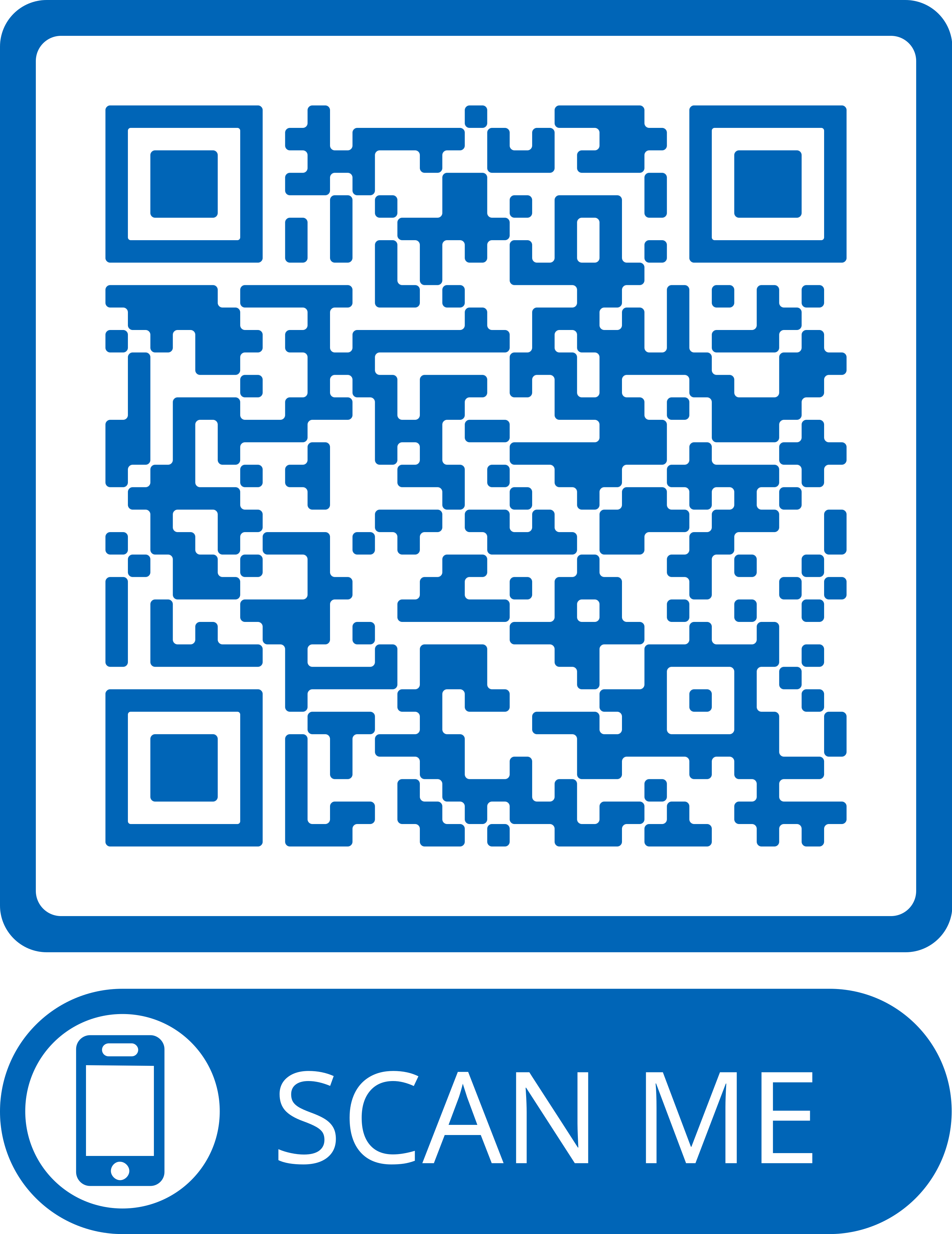- Reference Number: HEY-247/2023
- Departments: ENT
- Last Updated: 28 April 2023
Introduction
This leaflet has been produced to give you general information about your procedure. Most of your questions should answered by this leaflet. It is not intended to replace the discussion between you and your doctor, but may act as a starting point for discussion. If after reading it you have any concerns or require further explanation, please discuss this with a member of the healthcare team.
What is an Nasopharyngolaryngoscopy (NPL)
You may require a Nasopharyngolaryngoscopy (NPL) for nasal, throat or voice problems. The NPL is a narrow scope, with a special fibre optic lens on the end which is attached to a monitor or camera. The doctor will use it to view your nasal cavity, throat and voice box in order to try to identify any problems.
A local anaesthetic spray is often used when inserting the NPL; this will make the procedure feel as comfortable as possible for you.
Can there be any complications or risks?
The procedure may be a little uncomfortable as the scope is passed through the nose and down the back of the throat to the voice box. Some patients may feel like retching as the scope reaches the voice box. If you listen to the doctor’s instructions carefully, then this will usually help you. Please be assured that every effort will be made in order to make you feel comfortable. However, due to the nature of the procedure, some discomfort is likely.
It is very important that you do not eat or drink for 20 – 30 minutes after the anaesthetic spray has been applied to your throat, as there is a risk of choking.
What happens afterwards?
- If a local anaesthetic spray is use it will take 20-30mins for the effects to wear off.
- Your results will be explained to you by the doctor, immediately following the procedure.
- Any advice you are required to follow, will be given to you by your doctor at the time of the consultation.
- If you require any follow up treatment, this will also be discussed between your doctor and you following the procedure.
- Any follow up appointments should be discussed before you leave the department.

This leaflet was produced by the Ear Nose and Throat Department, Hull University Teaching Hospitals NHS Trust and will be reviewed in April 2026.
General Advice and Consent
Most of your questions should have been answered by this leaflet, but remember that this is only a starting point for discussion with the healthcare team.
Consent to treatment
Before any doctor, nurse or therapist examines or treats you, they must seek your consent or permission. In order to make a decision, you need to have information from health professionals about the treatment or investigation which is being offered to you. You should always ask them more questions if you do not understand or if you want more information.
The information you receive should be about your condition, the alternatives available to you, and whether it carries risks as well as the benefits. What is important is that your consent is genuine or valid. That means:
- you must be able to give your consent
- you must be given enough information to enable you to make a decision
- you must be acting under your own free will and not under the strong influence of another person
Information about you
We collect and use your information to provide you with care and treatment. As part of your care, information about you will be shared between members of a healthcare team, some of whom you may not meet. Your information may also be used to help train staff, to check the quality of our care, to manage and plan the health service, and to help with research. Wherever possible we use anonymous data.
We may pass on relevant information to other health organisations that provide you with care. All information is treated as strictly confidential and is not given to anyone who does not need it. If you have any concerns please ask your doctor, or the person caring for you.
Under the General Data Protection Regulation and the Data Protection Act 2018 we are responsible for maintaining the confidentiality of any information we hold about you. For further information visit the following page: Confidential Information about You.
If you or your carer needs information about your health and wellbeing and about your care and treatment in a different format, such as large print, braille or audio, due to disability, impairment or sensory loss, please advise a member of staff and this can be arranged.

